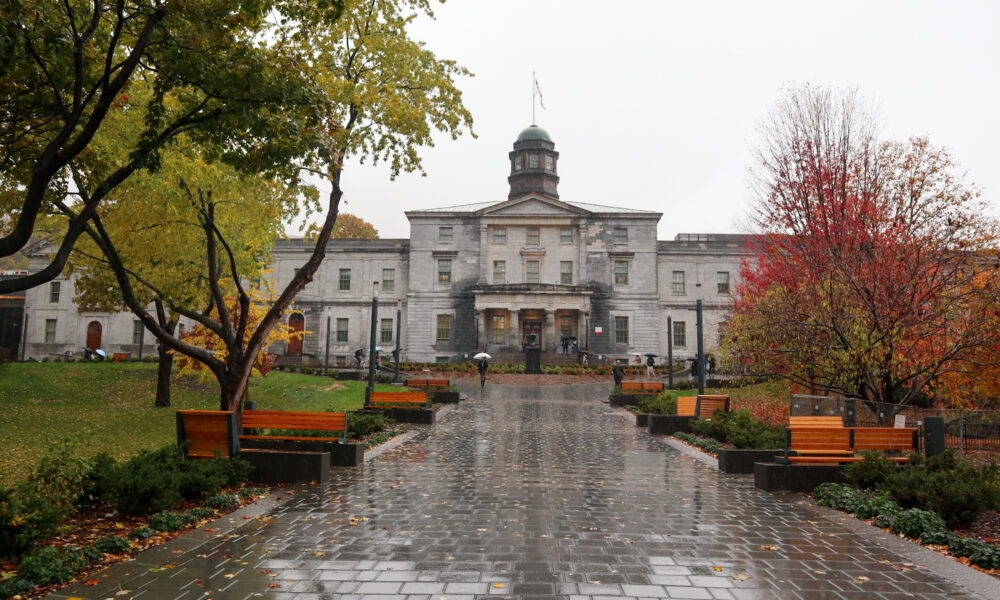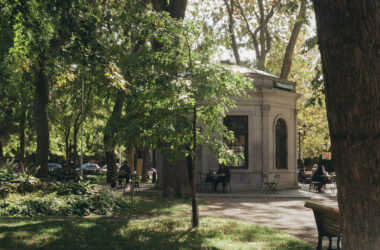McGill University has launched a new Bachelor of Arts (BA) faculty program in Population and Global Health. Beginning in the Fall 2026 semester, U0 students and incoming first years will be able to enroll in the program. Unlike other major concentrations in the Faculty of Arts, students in the program will progress together as a cohort, which they will be sorted into through the program’s five stream options.
In a written statement to The Tribune, Lisa Shapiro, dean of the Faculty of Arts and Department of Philosophy professor, explained that the new BA will extend beyond the Faculty of Arts’ scope because of its socioscientific approach to globally pressing issues.
“[The new program is] truly interdisciplinary [and] focused on developing a comprehensive understanding of the social determinants of health, ethics, [and] policy,” she wrote. “The program not only draws on expertise situated in the Faculty of Arts, it also represents the intrinsic strength of a Bachelor of Arts in enabling students to articulate values and understand complex contexts through a range of methodologies to be positioned to develop solutions to real world problems.”
Shapiro also explained why McGill will place students in cohorts in order to expedite their learning processes.
“The idea of a cohort is that students enter as a group and form a community with shared intellectual interests through which they can learn from each other, as they develop specializations, as well as from faculty members,” she wrote.
Alayne Mary Adams, associate professor in McGill’s Department of Family Medicine and co-director of the new BA, highlighted the community-focused and experiential learning aspects of the Population and Global Health program in an interview with The Tribune.
“The program will admit a cohort of 40 to 50 students each year from high school and [CÉGEP],” she said. “They will progress through the program […] attending the same classes, [with] full semester [work placements], collaborating in teams of three to four students.”
Adams elaborated that the program’s community-engaged learning will primarily take place in two courses. GPHL 303: Community-Engaged Learning will connect students with local partners to work in small groups on pre-vetted, equitable projects for 24 hours across eight weeks. GPHL 401: Experiential Learning will assign students 455-hour projects, placing them locally or internationally in collaboration with research institutes, health agencies, and community organizations.
In an interview with The Tribune, Pearce-Tai Thomasson, the Arts Undergraduate Society’s (AUS) Vice President of Communications, expressed that the new program will balance the MDCM’s—McGill’s four-year undergraduate medical program—admission process, which is currently disproportionately based on provincial residency status.
“In Quebec, with CÉGEP rules, you can apply to go to medical school […] straight out of your CÉGEP with the [Med-P qualifying year],” he said. “[Now] there’s only five spots [in the MDCM] for out-of-province students [….] The [new BA program] is another way to […] [guide more out-of-province students] towards the health professions.”
Thomasson continued to elaborate on how the Population and Global Health program will narrow gaps between academic knowledge and tangible world issues. He mentioned that during the COVID-19 pandemic specifically, many students became interested in finding realistic solutions to global crises.
“[In many other programs] you’re not necessarily going to be studying anything related to that, […] you’re [only] going to get a little bit of that knowledge every once in a while,” he said. “People are interested in medicine, but don’t certainly go to med school, but want to get into some health-related careers and diplomacy careers [instead] [….] I’m excited about the program, just because it gives people [such] opportunities.”









